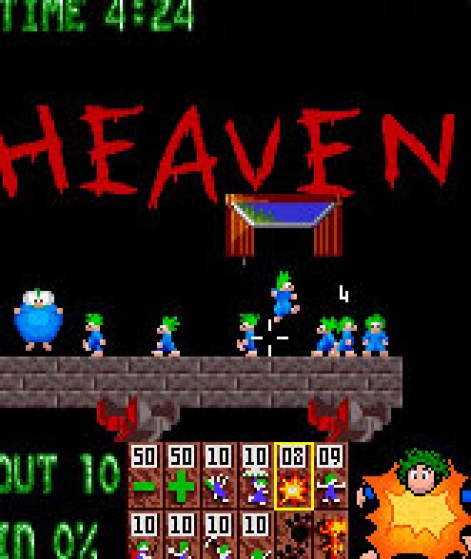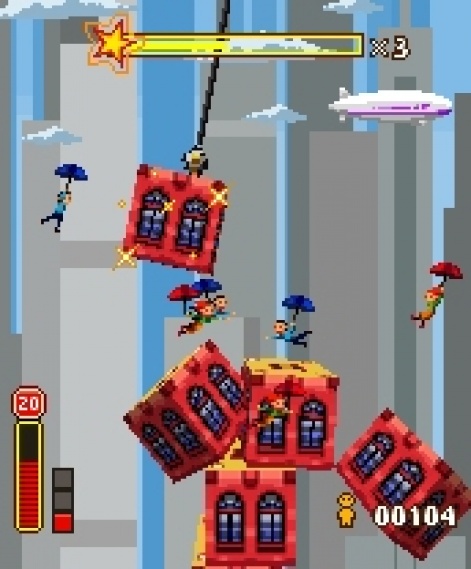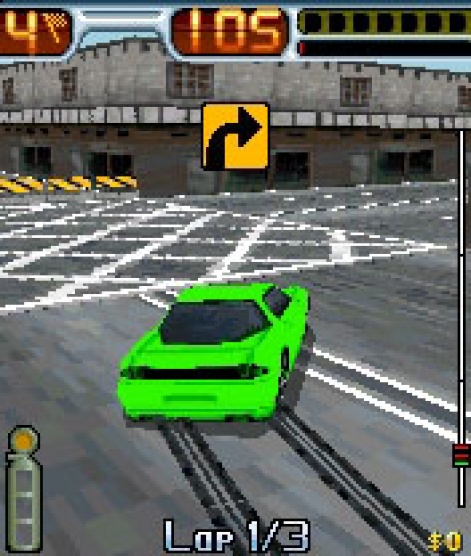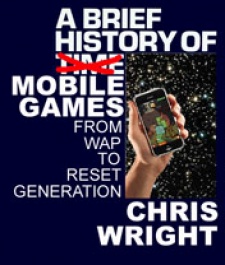The year started with a bang for gaming handset manufacturer Gizmondo: not only did it go horribly bust having spent around $400 million of its investors' money - selling less than 25,000 handsets in the process - but ex-director Stefan Eriksson managed to crash 'his' $1 million Ferrari at over 150 mph in Southern California. The police attention this brought, plus subsequent journalistic investigations, revealed that as well as a taste for fast cars, big houses, expensive watches and firearms, some of the company's executives were hiding some rather dark secrets. (You can read all about it in two excellent exposes from The Sunday Times and Wired.)
Back in the legitimate business world of mobile gaming, things were also moving at pace.

Having already gobbled up Macrospace, the newly renamed Glu Mobile completed the acquisition of UK mobile publisher iFone. The company had been set up in Manchester by Ocean co-founder and Infogrames executive David Ward, and it was through his contacts that it had the rights to make mobile versions of many of Atari's and Infogrames' console games. Thanks to titles such as Lemmings, V-Rally, Cluedo and Atari Arcade Legends, iFone quickly became a strong player, and was named the top-performing UK publisher in 2004 and 2005, also thanks in part to its ability to work with thirdparty publishers such as Sega.
The problem was iFone never managed to break into the US market, and with over 70% of the industry's revenues coming from America, it really didn't matter how well it did in the UK, it would never survive. So in the end Glu splashed out, effectively buying iFone for its licenses. Very few of the staff relocated to Glu's London HQ.

Other mobile publishers were positioning themselves in terms of the need for global recognition too. US outfit Mforma renamed itself Hands-On Mobile, while startup publisher Kayak re-named itself Blaze and then got bought by large web casual gaming publisher Oberon. Digital Chocolate kept its name, didn't buy anyone but raised $22.5 million in funding.
When it came to developments in mobile games themselves however, 2005 was the year in which 3D became a mass market proposition. Sure 3D games had been available since 2003, but it took a couple of years for phones with enough processing power to become widely available.
Of course, this added a new challenge for mobile game publishers. When Java had first appeared, it soon had become apparent that unlike the web world where Java lived up to its 'Write once, run anywhere' billing, mobile was very different. The differences in the capabilities of phones also meant that anything that was graphically complex wouldn't run over the wide range of handsets required without device by device changes. The mobile version of Java wasn't really designed with games in mind either. For example, the first version of Java for phones, called MIDP1.0, didn't include any sound.
As new phones were released, the problems of porting a game from device to device grew from dealing with a handful of versions to over 300, and the release of 3D games made the problem even worse. This wasn't helped by the approaches taken by the handset manufacturers. The official Java standard (JSR 184) was favoured by Nokia and Motorola, while Sony Ericsson chose the proprietary Mascot Capsule from Japanese company HI Corporation for its phones. The fragmentation nightmare that resulted in the majority of a game publisher's activity focused on porting games to as many handsets as possible rather than making as many great games as possible had begun
Oh, and less we forget, a certain website focused on mobile and handheld gaming launched in March 2006.
As for a selection of significant games from 2006, they demonstrated the range of content available from the blazingly original to lateral licences.
Tower Bloxx: (Digital Chocolate)
Digital Chocolate's Sumea studio has developed some of the best original mobile games and I'm willing to go toe-to-toe with anyone who doesn't agree that Tower Bloxx is its finest moment. In fact, it's one of the finest games ever created.

Like a Finnish version of Gamevil's Skipping Stone, it has all of the one-thumb gameplay, but without the distractions of the mad Korean visuals. Instead, the game is beautifully presented in both the original 2D and enhanced 3D versions, while correctly timing the release of the swinging tower blocks is an amazingly simple idea in terms of its 'one more go-ability', making it both infuriating and enjoyable at the same time. The fact it hasn't been a roaring success starkly demonstrates the industry's failure to engage consumers with great games. Instead we've taken the easy route and relied on licenses.
The Fast and the Furious: Tokyo Drift: (I-play)
I know, I know: not only is this another game that I worked on at I-play but it's another The Fast and the Furious game. So ignoring this obvious bias, I have to say, it really was significant. Not only is it a great game - winning IGN's E3 Game of the Show among its awards - but it was the best mobile game/film market campaign yet seen. The team behind it - and special credit should go to Mike Breslin - was simply flawless. The game was released ahead of the film and gave the players exactly what they wanted and expected. It sold in huge numbers. In my opinion, it was almost the perfect licenced product.
Paris Hilton's Diamond Quest: (Gameloft)

But if Tokyo Drift was a great licenced product then what the hell was Gameloft thinking with Paris Hilton's Diamond Quest? Taking a fairly standard if nicely presented match 3 game, sticking as many diamonds in it as possible and then using images of Paris Hilton at strategic points - it felt like the opportunistic marketing exercise based around the heiress' media profile that it probably was.
This view wasn't helped by the confusion over Paris' appearance at the E3 games show, where she turned up and in front of signs that said Paris Hilton's Jewel Jam, announced the title as Diamond Quest. Its subsequent 'renaming' - Gameloft revealed that despite the signs, the name had been changed to Diamond Quest prior to E3 - either suggests she's a smarter cookie than people give her credit for, or that Gameloft just decided to go with the flow. Anyhow, she did wear a very nice green dress with red shoes and lots of people took her photo, so it was probably all okay in the end.

A Brief History of Mobile Games: Intro
A Brief History of Mobile Games: 1990s - Snake and WAP
A Brief History of Mobile Games: 2000 - JAMDAT, Gameloft and WAP
A Brief History of Mobile Games: 2001 - Vivazzi, Picofun and Riot-E
A Brief History of Mobile Games: 2002 - Java, BREW and Space Invaders
A Brief History of Mobile Games: 2003 - Colour phones and N-Gage
A Brief History of Mobile Games: 2004 - JAMDAT, IOMO and EA Mobile
A Brief History of Mobile Games: 2005 - Gizmondo, Tetris and Glu
A Brief History of Mobile Games: 2007/8 - New N-Gage and iPhone
After 12 years in the games industry, the last eight as head of production at I-play, Chris Wright finally escaped. He now runs his own consultancy focusing on casual games. He can be contacted at chris [at] gamesconsultancy.com. All opinions expressed are the author's own.






















